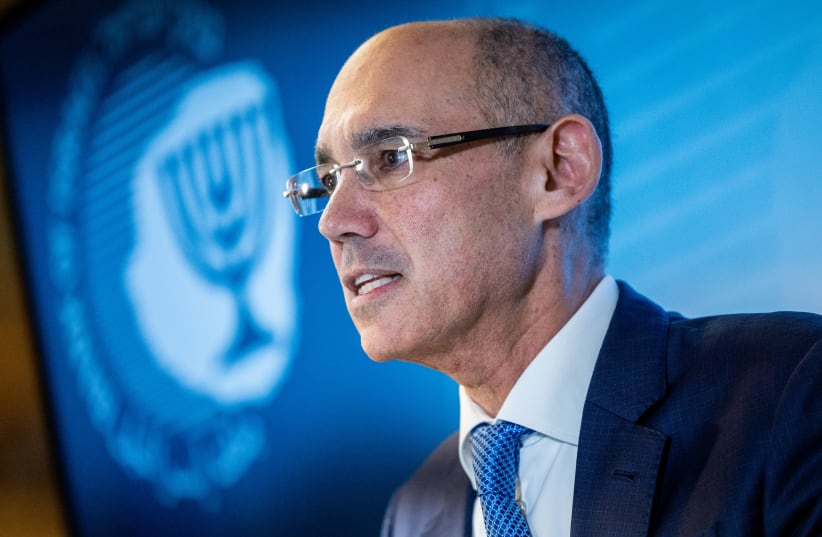Governor of the Bank of Israel Prof. Amir Yaron spoke out strongly against judicial reform in a Tuesday night interview with CNN, warning that it could lead to the loss of central bank independence.
“Right now, the changes in the judicial reform could weaken some of this independence,” he said. “Moreover, the process itself is hasty and does not have wide public agreement.”
Asked if he is worried about the possibility that investors will withdraw money and disinvest in Israel, Yaron answered in the affirmative, mentioning signs that this process may have already begun.
"Any country that has tinkered, let alone weakened, the independence of the central bank, has suffered dire economic consequences."
Prof. Amir Yaron, Governor of the Bank of Israel
"We have seen some hi-tech leaders and industry leaders telling us that maybe investment firms won't come in, and some of them are even talking [about how] they might take their business elsewhere in the long run," he explained. "The implication might be basically brain drain, etc, and this is why it needs to be handled with care."
Regarding concerns of judicial reform eroding the independence of the central bank, Yaron stressed that “the independence of the governor [and] the independence of the central bank are critical to the economy.
“Any country that has tinkered, let alone weakened, the independence of the central bank, has suffered dire economic consequences.”
A distant worry
However, he said that “I believe all our leaders and decision-makers ultimately understand this and therefore would not come close to touching the independence of the bank.”
The proof of this, he said, can be seen in the exchange last month between Prime Minister Benjamin Netanyahu, Finance Minister Bezalel Smotrich and Foreign Minister Eli Cohen, who had requested from them to take steps to prevent the further rise in Israel’s interest rates.
In response to Cohen, both Netanyahu and Smotrich stressed the importance of the Bank of Israel’s independence, with Netanyahu saying that “under my leadership, the Bank of Israel law – that guarantees the independence of the monetary committee headed by the governor in determining the interest rate – was passed. Nothing will change it.”
Yaron also said interest rate hikes will likely continue since inflation remains too high, while urging the government to maintain the independence of the country’s judicial system.
The governor also said that in Israel and globally, “we are seeing stickiness of inflation,” particularly in services.
“So we are determined, absolutely determined, to bring inflation back down to its target,” he said, referring to the government’s 1%-3% annual target. “And if that means continuing raising rates, and that is our primary tool, that’s what we will do.”
Israel’s inflation rate reached 5.4% in January, the highest since October 2008. February data are slated for release later on Wednesday and economists polled by Reuters estimate a 5.0% rate.
In a bid to contain inflation, the BoI has raised its benchmark interest rate to 4.25% from 0.1% over the past year.


